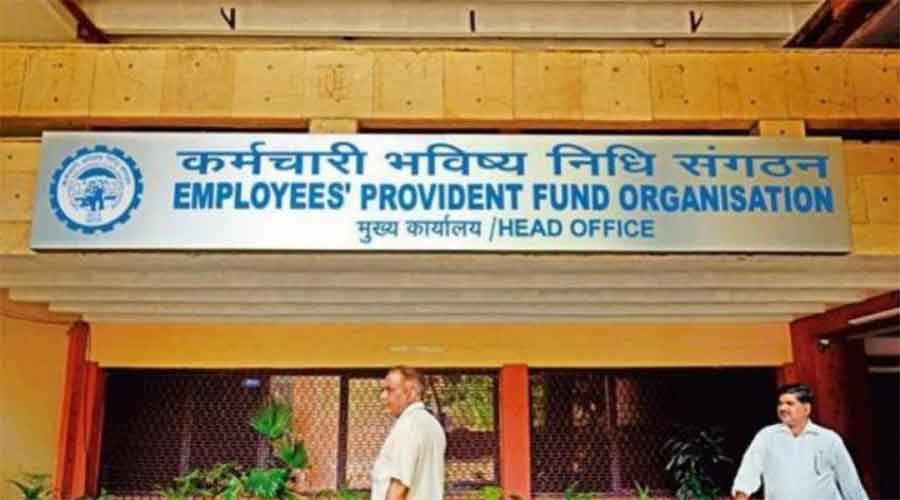The government is exploring the possibility of allowing increased contribution under the Employees’ Pension Scheme (EPS) to make room for enhanced pension.
The Central Board of Trustees of the Employees’ Provident Fund Organisation (EPFO), chaired by labour minister Bhupender Yadav, has set up a committee under labour secretary Sunil Barthwal to go into the matter.
“The CBT has formed an expert committee to examine if members can contribute more than the ceiling so that they can get higher pension,” said Ramendra Kumar, leader of CPI labour arm Aituc who attended Saturday’s CBT meeting.
Employer and employee now contribute 12 per cent of the employee’s salary each to the EPFO. Of this, an amount equivalent to 8.33 per cent of the salary goes to the EPS subject to a ceiling of Rs 15,000 a year, and the rest to the Provident Fund.
Members receive a pension after turning 58, the amount depending on their contribution. The maximum pension is Rs 7,500 a month.
The government has fixed a minimum monthly pension of Rs 1,000 and makes up the balance if a low-paid employee’s pension comes to less than this.
In addition, the labour and employment ministry contributes an amount equivalent to 1.16 per cent of a member’s salary to the EPFO if the salary is less than Rs 15,000 a month.
“There are demands for a higher pension under the EPS. It’s not possible unless the contribution is raised,” a labour ministry official said.
He said the committee headed by the labour secretary would also explore a separate pension scheme for low-wage employees.
The Centre spends around Rs 7,500 crore a year contributing to the EPS for low-paid workers. This fiscal’s budget allocation towards the EPS is Rs 7,364 crore.
The parliamentary standing committee on labour, headed by Bhartruhari Mahtab, had in a report in March 2020 recommended raising the minimum pension to at least Rs 3,000 a month.
But the labour ministry is not keen. Its officials suggested an alternative to the House panel: allow retired employees to take out their entire EPS balance and still receive the minimum pension of Rs 1,000.
The panel report quoted the labour secretary as saying that raising the minimum pension to Rs 3,000 would cost the government an additional “Rs 14,000 crore to Rs 15,000 crore”.
But the committee stuck to its recommendation. “The committee… desire(s) that earnest efforts be made for addressing the drawbacks or limitations of the scheme, and at the same time ensure that the worker’s interest(s) are protected by way of ensuring a reasonable monthly pension of at least Rs 3,000,” it said.











